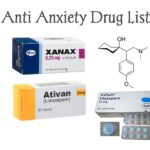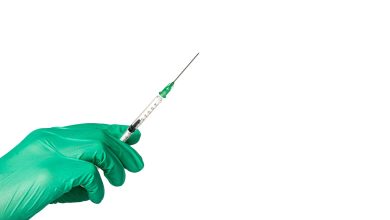Top 10 Anxiety Medications and Natural Remedies

Anxiety disorders are a group of mental health conditions characterized by excessive and persistent feelings of fear, worry, or anxiety. These feelings can interfere with daily activities, relationships, and overall well-being. There are several types of anxiety disorders, including:
- Generalized Anxiety Disorder (GAD): Individuals with GAD experience excessive and uncontrollable worry about various aspects of life, such as work, health, and relationships, often without a specific cause or trigger.
- Panic Disorder: People with panic disorder experience recurrent panic attacks, which are intense episodes of fear or discomfort. These attacks typically come on suddenly and may be accompanied by physical symptoms like rapid heartbeat, sweating shortness of breath, and a sense of impending doom.
- Social Anxiety Disorder (Social Phobia): Social anxiety disorder involves an intense fear of social situations and a persistent worry about being embarrassed, judged, or humiliated by others. It often leads to avoidance of social interactions.
- Specific Phobias: Specific phobias are characterized by intense fear and avoidance of a specific object, situation, or activity. Common phobias include fear of heights, spiders, flying, or needles.
- Obsessive-Compulsive Disorder (OCD): OCD involves recurring, intrusive thoughts or obsessions that lead to repetitive behaviors or compulsions. These behaviors are often performed to alleviate anxiety or prevent a feared outcome.
- Post-Traumatic Stress Disorder (PTSD): PTSD can develop after experiencing or witnessing a traumatic event. Symptoms may include intrusive thoughts, nightmares, flashbacks, emotional distress, and avoidance of reminders of the event.
Anxiety disorders are among the most common mental health disorders worldwide. According to data from the World Health Organization (WHO), it is estimated that around 275 million people globally suffer from anxiety disorders. This number represents approximately 3.6% of the global population.
It’s important to note that this statistic represents diagnosed cases of anxiety disorders, and the actual number of people experiencing anxiety symptoms may be higher. Anxiety can range from mild to severe, and many individuals may experience occasional or situational anxiety that does not meet the criteria for a formal diagnosis.
Anxiety disorders can affect people of all ages, genders, and backgrounds. They can have a significant impact on an individual’s quality of life, relationships, and daily functioning. Treatment for anxiety disorders typically includes a combination of therapy and, in some cases, medication. Cognitive-behavioral therapy (CBT) is often used, which helps individuals identify and modify negative thought patterns and develop healthier coping strategies.
Anxiety Disorder Medication
There are several medications commonly used in the treatment of anxiety disorders. It’s important to note that medication should be prescribed and managed by a qualified healthcare professional, such as a psychiatrist or a primary care physician. They will evaluate your specific symptoms, medical history, and individual needs to determine the most appropriate medication for you. Here are some commonly prescribed medications for anxiety disorders:
- Alprazolam (Xanax): Alprazolam is a short-acting benzodiazepine that provides quick relief of acute anxiety symptoms. It works by enhancing the effects of a neurotransmitter called gamma-aminobutyric acid (GABA), which helps calm the brain. It is typically prescribed for short-term use due to the potential for dependence and side effects such as drowsiness, dizziness, and cognitive impairment.
- Buspirone (Buspar): Unlike benzodiazepines, buspirone is not associated with sedation or dependence. It is specifically approved for the treatment of generalized anxiety disorder (GAD). Buspirone affects the neurotransmitter serotonin and dopamine levels in the brain, helping to reduce anxiety symptoms. Side effects are generally mild and may include dizziness, headache, and nausea.
- Duloxetine (Cymbalta): Another SNRI, duloxetine is prescribed for generalized anxiety disorder and certain other anxiety disorders. It helps regulate serotonin and norepinephrine levels in the brain. Side effects may include gastrointestinal issues, fatigue, and changes in appetite.
- Escitalopram (Lexapro): It is a selective serotonin reuptake inhibitor (SSRI) that increases serotonin levels in the brain. It is commonly prescribed for generalized anxiety disorder (GAD) and other anxiety disorders. It helps alleviate anxiety symptoms by improving mood, reducing worry, and promoting a sense of calm. Common side effects may include nausea, insomnia, and sexual dysfunction.
- Fluoxetine (Prozac): Another SSRI, fluoxetine is prescribed for multiple anxiety disorders, including GAD, panic disorder, and OCD. It helps regulate serotonin levels in the brain, improving mood and reducing anxiety symptoms. Side effects may include gastrointestinal disturbances, insomnia, and sexual dysfunction.
- Hydroxyzine (Vistaril): Hydroxyzine is an antihistamine with sedating properties that can be prescribed for managing anxiety symptoms. It works by blocking histamine receptors in the brain, leading to sedation and reduced anxiety. Side effects may include drowsiness, dry mouth, and blurred vision.
- Lorazepam (Ativan): Lorazepam is another benzodiazepine used for short-term relief of anxiety symptoms. It has similar effects to alprazolam, enhancing the effects of GABA to promote relaxation and reduce anxiety. Side effects may include drowsiness, sedation, and coordination difficulties.
- Pregabalin (Lyrica): Although primarily used to treat nerve pain, pregabalin is sometimes prescribed off-label for anxiety disorders. It works by reducing the release of certain neurotransmitters involved in the perception of pain and anxiety. Side effects may include dizziness, drowsiness, and weight gain.
- Sertraline (Zoloft): Also an SSRI, sertraline is prescribed for various anxiety disorders such as panic disorder, social anxiety disorder, and obsessive-compulsive disorder (OCD). It works by increasing serotonin levels in the brain. Side effects may include gastrointestinal issues, sleep disturbances, and sexual dysfunction.
- Venlafaxine (Effexor): Venlafaxine is a serotonin-norepinephrine reuptake inhibitor (SNRI) commonly prescribed for generalized anxiety disorder and sometimes panic disorder. It increases the levels of both serotonin and norepinephrine in the brain. Side effects may include nausea, dizziness, and increased blood pressure.
It’s important to remember that medication effectiveness and side effects can vary from person to person. A healthcare professional will evaluate your individual needs and provide guidance on the most appropriate medication for your specific anxiety.
Natural Anxiety Medication
There are several natural remedies that are often suggested for managing anxiety symptoms. It’s important to note that these remedies may not have the same level of scientific evidence supporting their effectiveness as prescription medications or therapy, and individual responses can vary. It’s always a good idea to consult with a healthcare professional before starting any new treatment. Here are some natural remedies that some people find helpful for anxiety:
1. Chamomile: Chamomile is an herb that has been used for its calming properties. It can be consumed as a tea or taken in supplement form. It may help reduce anxiety and promote relaxation.
2. Lavender: Lavender essential oil is known for its calming scent. It can be used in aromatherapy, such as through a diffuser or by adding a few drops to a bath. Some people find the scent of lavender helpful in reducing anxiety.
3. Valerian Root: Valerian root is an herb that has been used for centuries as a natural remedy for anxiety and insomnia. It is often available in supplement form, and some individuals find it helpful for promoting relaxation and better sleep.
4. Lemon Balm: Lemon balm is an herb that is believed to have calming effects. It can be consumed as a tea or taken as a supplement. Some research suggests that lemon balm may help reduce anxiety symptoms.
5. Passionflower: Passionflower is an herb that has been traditionally used for anxiety and insomnia. It can be consumed as a tea or taken in supplement form. Some studies suggest that passionflower may have anxiety-reducing effects.
Remember that natural remedies may not be suitable for everyone, and it’s essential to discuss any new treatment approaches with a healthcare professional. They can provide personalized guidance based on your specific needs and circumstances.





